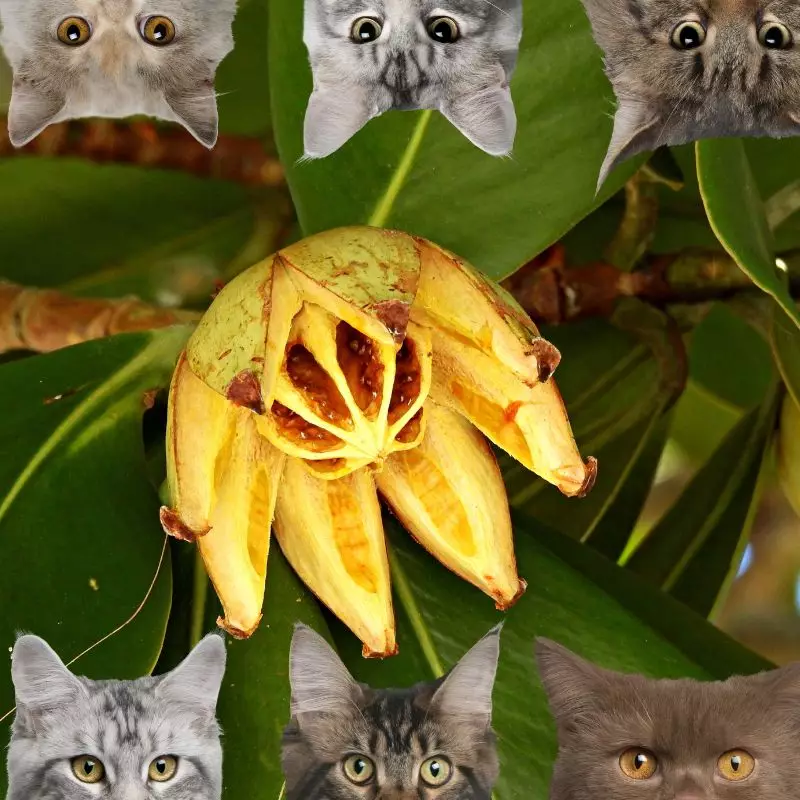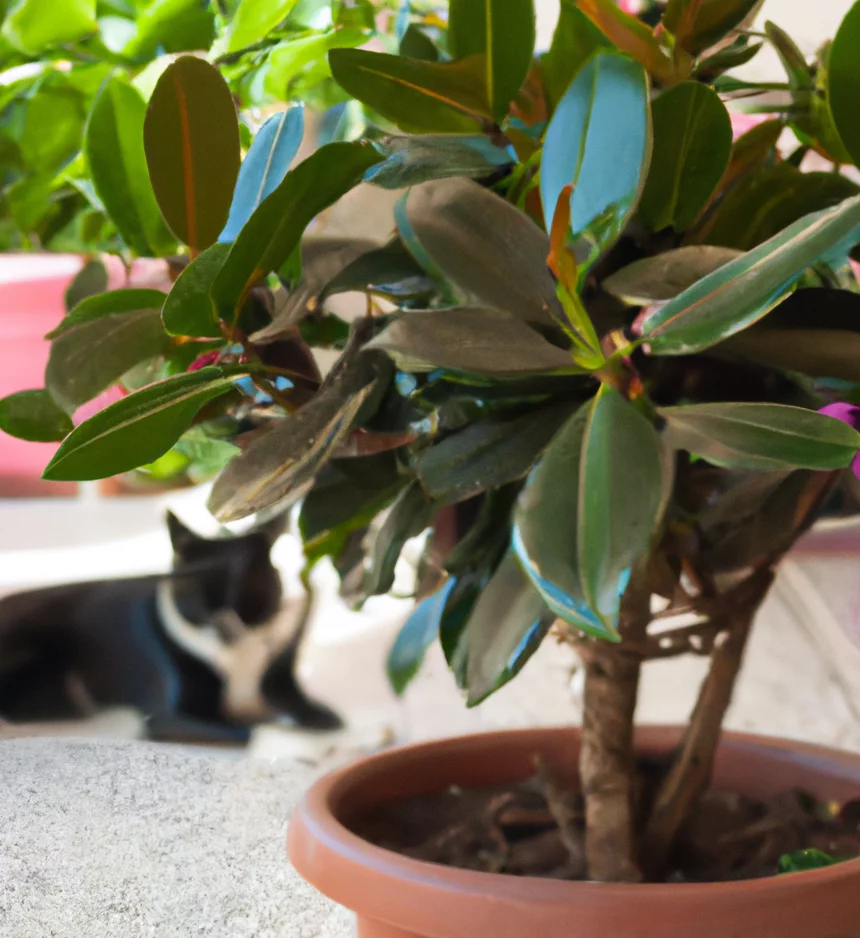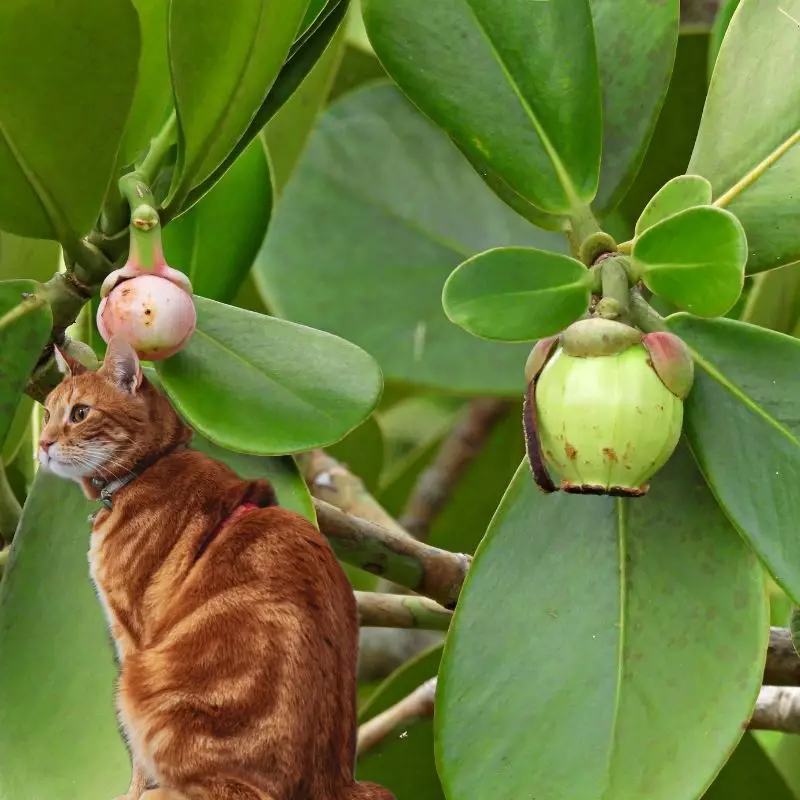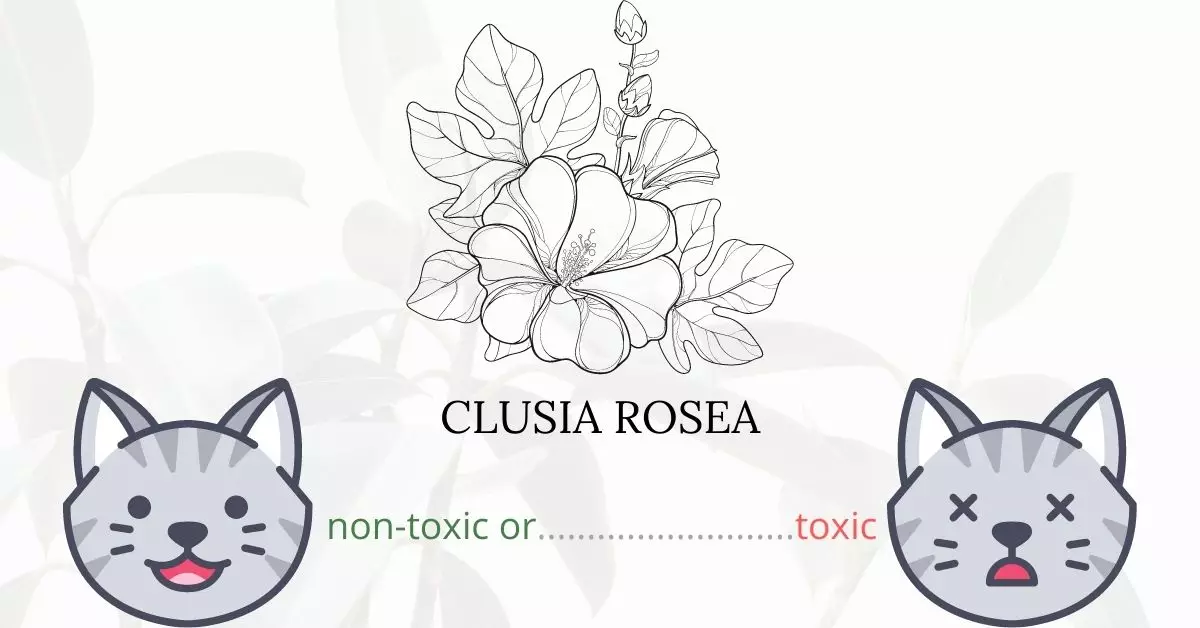Yes, Clusia Rosea, also known as the Autograph Tree, is toxic to cats.
This article has been written in collaboration with a team of experienced DVMs (doctors of veterinary medicine). Through their valuable contributions, we are able to provide accurate and up-to-date information on the potential risks associated with Clusia Rosea and its effects on cats. Furthermore, our information is backed by research from high-authority websites, including ASPCA and PetMD, ensuring its credibility.
Clusia Rosea is popular as an indoor plant because of its beautiful foliage. However, all parts of this plant, especially its fruits, are harmful to cats. They contain terpenes which can cause gastrointestinal upset, and if consumed in large quantities, may lead to central nervous system disorders and liver failure in felines. It’s crucial for cat owners to be aware of this risk and keep this plant out of their cats’ reach.
Clinical Signs of Clusia Rosea or Autograph Tree Poisoning in Cats

When a cat comes into contact with, smells, or consumes any part of the Clusia Rosea plant, certain chemicals and toxins within the plant can lead to various adverse reactions. Here’s a breakdown of the clinical signs and their underlying causes:
- Vomiting and Diarrhea: Caused by the gastrointestinal system’s immediate reaction to the terpenes in the plant. This is the body’s way of trying to eliminate the toxins.
- Drooling: A common immediate response when a cat tastes or chews on something bitter or toxic. The excessive saliva production helps to expel the harmful substances.
- Low Body Temperature: The toxins can affect the cat’s metabolic processes, leading to a drop in body temperature as the body struggles to cope.
- Weakness: A result of the toxins impacting the cat’s overall energy levels and cellular functions.
- Loss of Coordination and Inability to Walk: Terpenes in Clusia Rosea can affect the cat’s central nervous system, leading to disorientation and motor control issues.
- Tremors and Paralysis: These severe neurological signs are due to the direct toxic effect on the central nervous system. The toxins interfere with normal nerve function, leading to involuntary muscle movements or a complete lack of movement.
- Coma: In extreme cases, the central nervous system’s depression can lead to a comatose state, wherein the cat becomes entirely unresponsive.
- Increased Levels of Liver Enzymes: The liver tries to metabolize and clear out the toxins, leading to overexertion and a spike in enzyme levels as a result. This is a clear indicator of liver distress.
- Death: If left untreated or if the cat consumes a large amount of the plant, the cumulative effects of the toxins can unfortunately be fatal.
It’s crucial to consult a veterinarian immediately if you suspect your cat has come into contact with Clusia Rosea. Early intervention can drastically improve the prognosis.
First Aid and Treatment of Clusia Rosea or Autograph Tree Poisoning in Cats

Terpenes do not have an antidote. The type of treatment is determined by the level of toxicity. Support therapy with intravenous fluids is one of the the typical treatment. It is not advisable to induce vomiting. If vomiting is provoked, the neurological effects of the terpenes, as well as the thick quality of the oil, enhance the risk of aspiration pneumonia.
Following the administration of vomit medication to your cat, the vet may administer activated charcoal to absorb any leftover toxins in your cat’s gut. Activated charcoal should not be used in cats with serious illnesses since it can cause aspiration.
Other medications may be also prescribed by your veterinarian depending on your cat’s illness. Liver protectants like silymarin may be also administered to your cat.
Recovery from Clusia Rosea or Autograph Tree Poisoning in Cats

Full recovery of your cat depends on the quantity of the plant he ingested and how quickly he or she was taken to the veterinary clinic. If your cat was given prompt attention and care, you do not have to worry. It is vital that the mild symptoms be addressed right away to prevent developing extreme conditions.
Prevention of Clusia Rosea or Autograph Tree Poisoning in Cats
It is important to know more about plants before starting to grow or bringing anything within the vicinity of your home. Limiting your cat’s outdoor activities will also minimize his or her risk of exposure to toxic plants around your neighborhood.
If you love plants but have cats at home, check out these lists:





